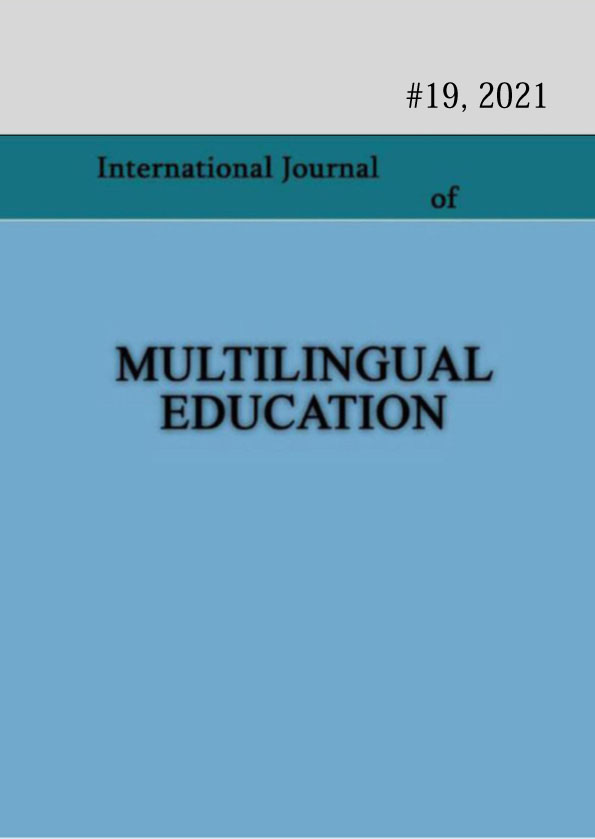Use of Electronic Feedback in Second Language Writing: Teachers’ and Students’ Views
Keywords:
electronic feedback, second-language writing, undergraduate students, Google DocsAbstract
Feedback has always been considered important in second language writing. Quite recently due to various reasons, electronic feedback has become one of the frequently applied types (Zareekbatani, 2015; Ene & Upton, 2018). The aim of the research study was therefore to identify lecturers’ and students’ views on the use of online comments provided on the second language writing tasks. The data was collected through conducting online semi-structured interviews with undergraduate students and lecturers of one Uzbek university. The findings revealed that a variety of comments given on different aspects of the written assessment tasks in the Google documents and combined with additional oral feedback were effective. The article aims at discussing the detailed findings of the research study and providing possible suggestions for language teachers on the use of electronic feedback in L2 writing.
References
Bakla, A. (2020). A mixed-method study of feedback modes in EFL writing. Language Learning & Technology, 24(1), 107–128. https://doi.org/10125/44712
Brookhart, S. M. (2008). How to Give Effective Feedback to Your Students. Alexandria: ASCD.
Ene, E. & Upton, T.A. (2018). Synchronous and asynchronous teacher electronic feedback and learner uptake in ESL composition. Journal of Second Language Writing, 41, 1–13. https://doi.org/10.1016/j.jslw.2018.05.005
Hartshorn, K. J., & McMurry, B. L. (2020). The Effects of the COVID-19 Pandemic on ESL Learners and TESOL Practitioners in the United States. International Journal of TESOL Studies, 2(2), 140-156. https://doi.org/10.46451/ijts.2020.09.11
Hyland, K. & Hyland, F. (2006). Feedback on second language students’ writing. Language Teaching, 39(2), 83-101. http://hdl.handle.net/10722/57356
Irons, A. (2008). Enhancing Learning through Formative Assessment and Feedback. London: Routledge.
Johnson, W. F., Stellmack, M. A., & Barthel, A. L. (2019). Format of Instructor Feedback on Student Writing Assignments Affects Feedback Quality and Student Performance. Teaching of Psychology, 46(1), 16-21. https://doi.org/10.1177/0098628318816131
Lv, X., Ren, W., & Xie, Y. (2021). The Effects of Online Feedback on ESL/EFL Writing: A Meta- Analysis. Asia-Pacific Edu Res. https://doi.org/10.1007/s40299-021-00594-6
McGrath, A. & Atkinson-Leadbeater, K. (2016). Instructor Comments on Student Writing: Learner Response to Electronic Written Feedback. Transformative Dialogues: Teaching & Learning Journal, 8(3).
Saadi, Z. K. & Saadat, M. (2015). EFL Learners’ Writing Accuracy: Effects of Direct and Metalinguistic Electronic Feedback. Theory and Practice in Language Studies, 5(10), 2053- 2063. http://dx.doi.org/10.17507/tpls.0510.11
Saeed, M. A. & Al Qunayeer, H. S. (2020). Exploring teacher interactive e-feedback on students’ writing through Google Docs: factors promoting interactivity and potential for learning. The Language Learning Journal. https://doi.org/10.1080/09571736.2020.1786711
Zareekbatani, A. (2015). Technology and L2 writing: EFL student perspectives on electronic feedback using online learning logs (Published Doctoral Dissertation). University of Exeter, Exeter, UK. Retrieved from http://hdl.handle.net/10871/17297
Published
How to Cite
Issue
Section
License
Copyright (c) 2021 Liliya Makovskaya

This work is licensed under a Creative Commons Attribution-NonCommercial 4.0 International License.
Copyright (c) - Authors who publish with this journal agree to the following terms: Authors retain copyright and grant the journal the right of first publication with the work simultaneously licensed under a Creative Commons Attribution-Noncommercial 4.0 International License, which allows others to share the work with an acknowledgement of the work's authorship and initial publication in this journal. Authors are permitted and encouraged to post their work online (e.g., in institutional repositories or on their personal website) prior to and during the submission process, as it can lead to productive exchanges, as well as earlier and greater citation of published work (see The Effect of Open Access). Authors may enter into separate, additional contractual arrangements for the non-exclusive distribution of the journal's published version of the work (e.g., post it to a repository or publish it in a book), with an acknowledgement of its initial publication in this journal.

